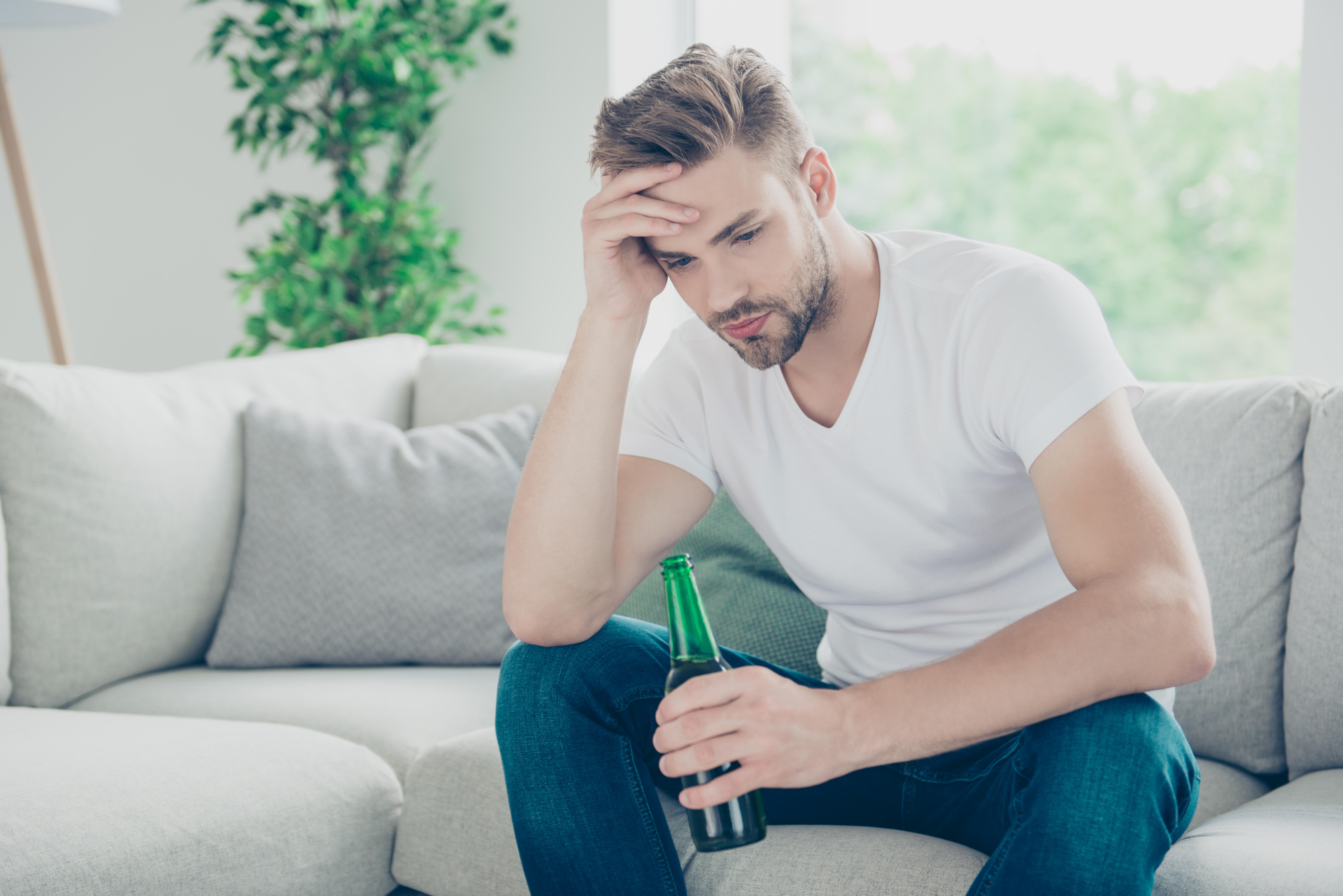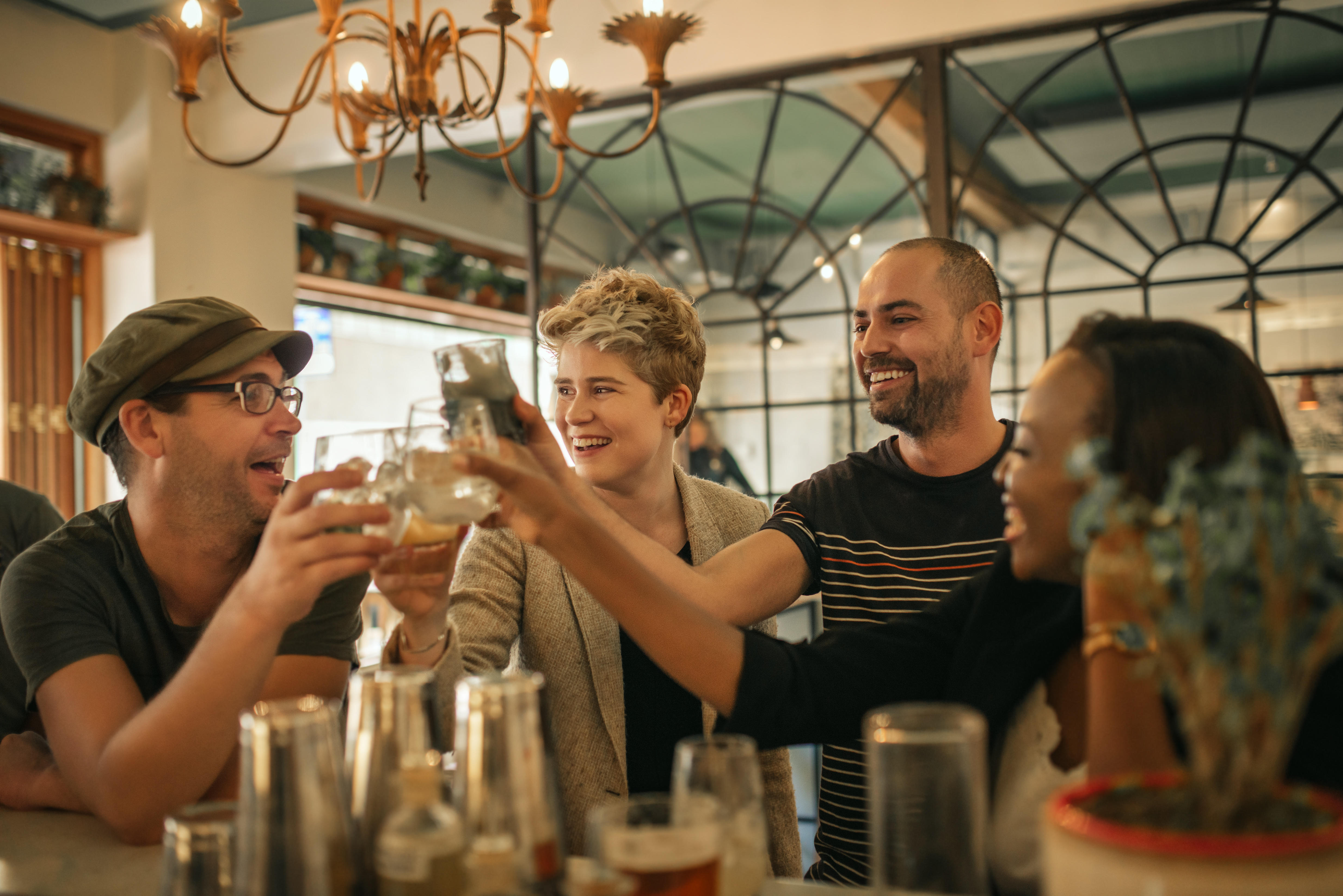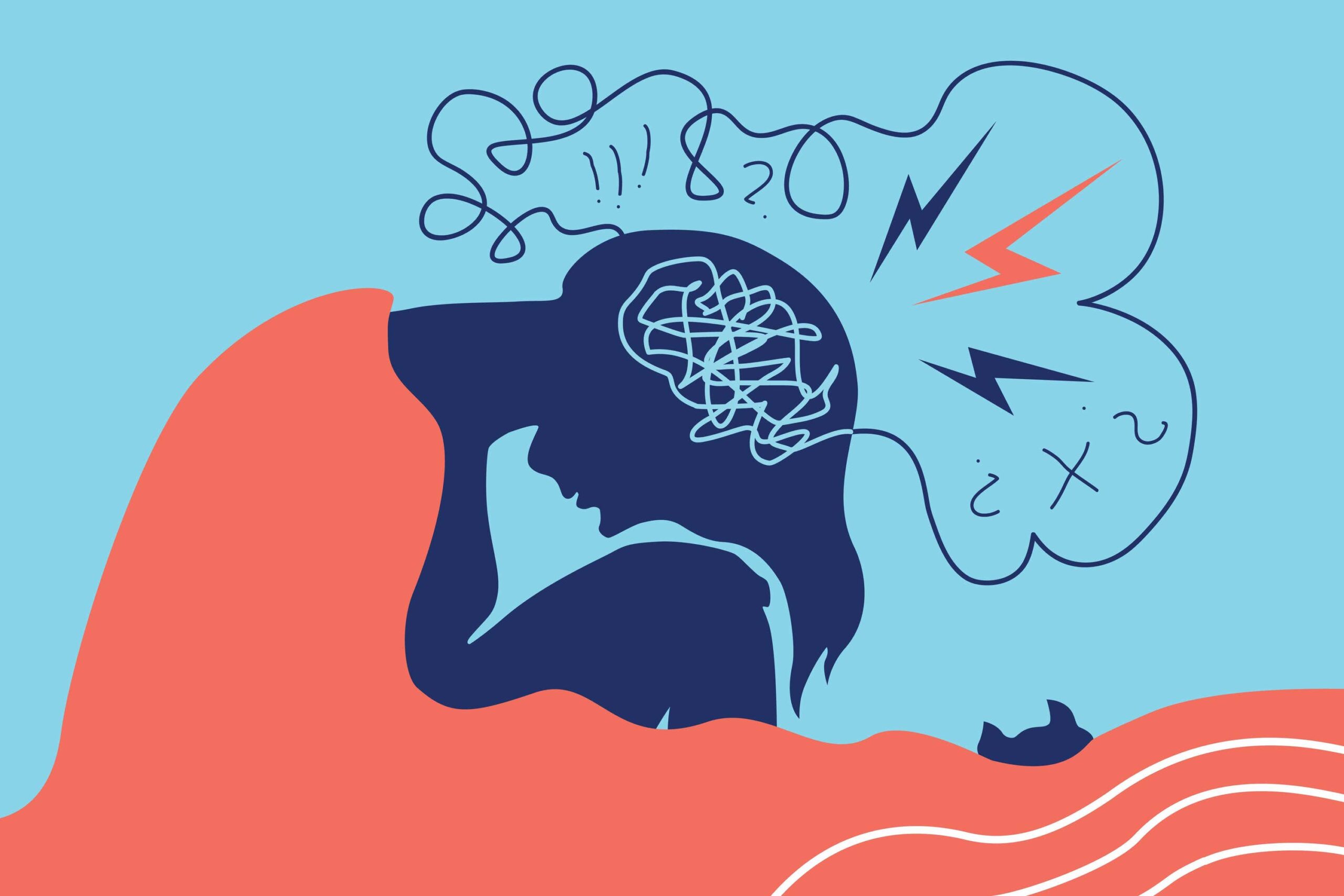
Now that we’re back in the swing of real-life socialising, you might have found the amount you drink has risen too, and as we head into the festive season, booze is likely to be around and on hand even more than usual.
But for anyone who experiences feelings of anxiousness – whether a diagnosed generalised anxiety disorder, social anxiety, feelings of worry you find difficult to control, or just anxiety around a certain event – drinking can come with complications.
Even if you don’t suffer from anxiety, it’s become normalised to have a drink or two for ‘Dutch courage’ or to calm nerves if you’re in a social situation where you don’t feel entirely confident.
But drinking when you feel insecure could lead to bigger problems down the line, says Priory psychotherapist Pamela Roberts, based at Priory’s Woking Hospital in Surrey (priorygroup.com): “While we are culturally conditioned to have a drink to ‘calm our nerves’ or cope, it can end up being a vicious cycle where alcohol and anxiety become interlinked.”
What happens to your brain and body when you mix anxiety and alcohol?
“Anxiety will increase your breathing and heart rate, which concentrates blood flow to your brain, giving it more oxygen.
The effects of this can be to make you feel sick and dizzy. You might feel palpitations and chest pain,” explains Roberts.
“Anxiety also impacts your digestive system – giving you symptoms of gastritis or ‘butterflies’, nausea, diarrhoea, and you might lose weight or binge eat. [It] can trigger your flight-or-fight stress response and release a flood of chemicals and hormones, like adrenaline, into your body.”
Adding a drink to this response can initially distract you and give the illusion of calmness, as alcohol has sedative qualities, she says, but don’t be fooled by that initial feeling.
“It also has effects on your brain that can actually increase your anxiety, so alcohol and anxiety fuel each other.
“Drinking alcohol, especially heavily, can worsen other mental health conditions [too] like depression, by reducing your levels of serotonin and other brain chemicals, which are already low in anxious and depressed people.
“It can also affect your sleep, again increasing your anxiety, [impacting] your energy and your judgment,” she adds, not to mention increasing the chance of ‘hangover anxiety’ the next day.
What could be the impact long-term?

Your brain may begin to associate feeling less anxious with alcohol, and “the longer-term impact is that you rely on alcohol to self-medicate for lots of situations,” says Roberts.
“This can tip into drinking a lot, and a lot more often, as often [people] cannot control their intake, and the root cause of the anxiety isn’t addressed.”
It can be especially risky for people who suffer from social anxiety.
“[They] may find the only way they are able to cope in social situations is to drink alcohol.
This may develop into alcohol abuse, particularly if they have to socialise often, say as part of their work, or if their tolerance to alcohol increases – meaning they need larger amounts to ‘reduce’ their anxiety.”
We all know the guidelines (14 units a week – but spaced out) if you develop a high tolerance by drinking much more, it not only triggers the cycle of the physical need for more, but psychologically you’re more likely to overlook the potential negative impacts, “including emotional ‘deficiency’ – the opposite of emotional resilience, which is what we all need to be able to cope with what life throws at us,” says Roberts.
And, of course, long-term alcohol misuse carries an increased risk of cancer, especially breast cancer, heart disease and liver disease.
How can I deal with anxious feelings in a healthier way?

Aside from practical things: don’t keep alcohol in the house, go to bed earlier, exercise when feeling anxious, meet friends for coffee, go for a walk in nature, take a bath – anything where alcohol isn’t connected. Roberts says to really think about when you’re drinking and why.
“Ask yourself – is your drink habit costing you more than money? Is it affecting your health (long and short-term), your job, your relationships, your self-esteem?”
As with most things, talking to someone you trust can do wonders.
So if you’re feeling worried about something in particular or anxious in general, share what’s on your mind.
And there’s no shame in asking for the listening ear of someone professional – online therapy is more accessible than ever and there are plenty of support groups and charitable organisations out there, as well as your GP.
